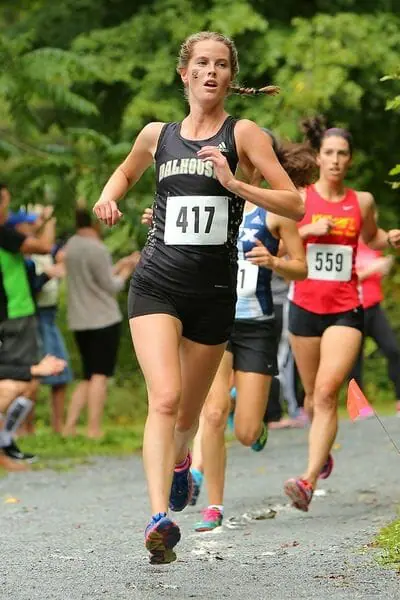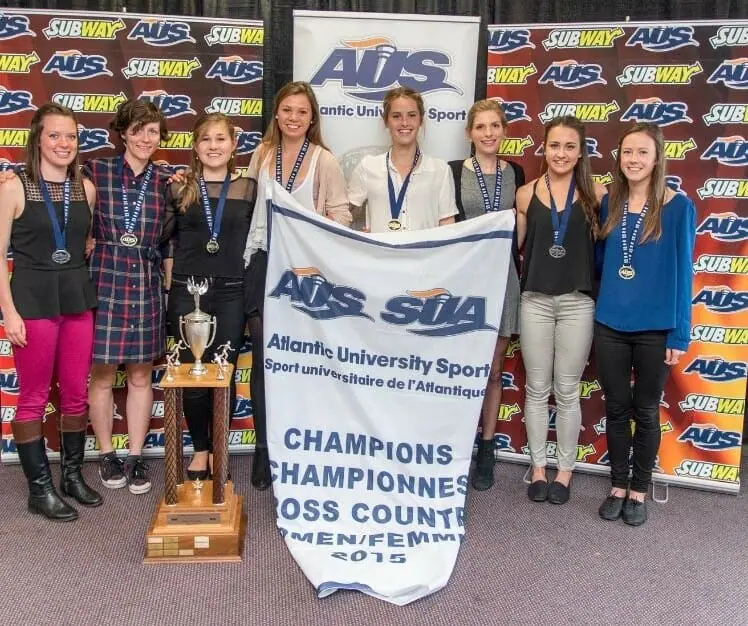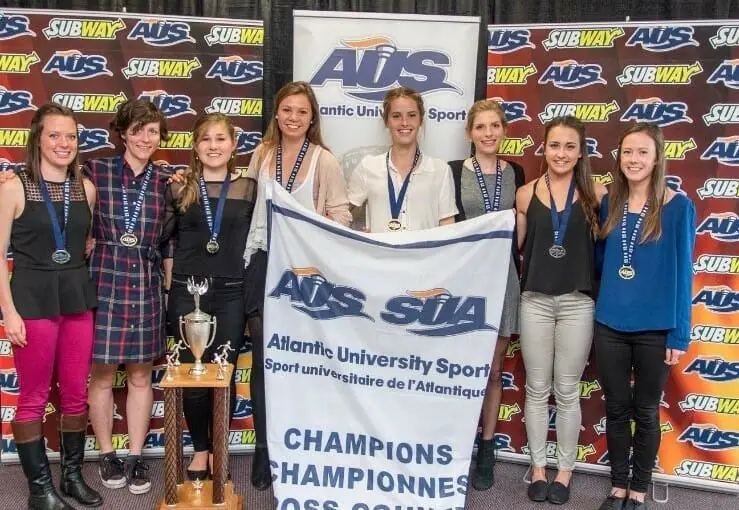When Emily Clarke considered becoming a coach toward the end of her cross-country tenure as a Dalhousie University student, she reflected on who coached her and served as her role model as a runner.
“I grew up never really having a female coach. I’ve always had male coaches,” said Clarke, now an assistant coach for the Dal Tigers cross-country and track teams.

The U Sports Female Apprenticeship Coach Program, to which Clarke was selected on Aug. 20, aims to provide more opportunities and resources for female coaches in Canada. Clarke is among 18 coaches, all former U Sports student-athletes, selected for the program.
The new program’s goal is to increase the number of female coaches at the university level so fewer women in sports will be left without a female mentor like Clarke was.
“This is an awesome opportunity to inspire other women to become coaches and show more [female] representation,” … “[This goal] makes me even more passionate about coaching.”Emily Clarke
A player’s coach
Dal’s cross-country and track and field head coach Richard Lehman began his coaching career, and first coached Clarke, 11 years ago at Dartmouth High School. He remained her coach until Clarke graduated from Dal in 2016. Clarke’s Dal years were some Lehman hasn’t seen from an athlete before or since.
“She was the best leader we’ve had in the program,” said Lehman, a seven-time AUS women’s cross-country coach of the year. “I’ve had very, very good captains and leaders, but Emily was on a different level as a leader.”
Clarke’s athletic abilities have transferred into her coaching style. She began coaching in 2017 with both Dal and HaliFAST, a provincial track and field team in Nova Scotia. Athletes know what they’re getting with Clarke as their coach. So does she.
“I can help people realize what goals they can achieve and push them beyond their expectations. I’m a personable coach. I want to listen to my athletes,” Clarke said.
“People gravitate to her. Being the person she is, everyone in the program is drawn to her,” said Lehman, calling Clarke the team’s “player’s coach.”
“She can drop anywhere she needs to. When a message needed to be delivered to the team, she was pretty keen on being the one to do it,” Lehman said.
Providing support and leadership
Fourth-year runner James Cromack has been coached by Clarke his entire time at Dal. When he was out with an injury last year, he saw Clarke’s commitment to helping her athletes up close.
“Emily would stay back [at Dal] with other injured athletes and me when the team travelled to meets. There were low points where I was getting back into working out in my recovery and she was there to provide support and boost my confidence,” Cromack said.“Her being there, when she volunteers her time when no one’s watching, is very crucial to who she is.”
“In my first workout back from an injury, I was a bit timid to get back on the track. But[Clarke] was the one to push me through that first workout,” said second-year runner Hannah Trites, who spent much of last season recovering from her own injury. “That’s why I came back with the confidence that I did, because of those first workouts.”
Lehman, who will mentor Clarke through the apprenticeship, said he’s excited to help and watch Clarke improve from a talented coach to an even better one.

“It was awesome coaching her and even better becoming close friends and having her on our [coaching] staff. Her coaching instincts are ridiculously good. She knows the sport,” said Lehman.“Working with him inspires me to be a better coach. I feel really lucky to have him as a coach, mentor and friend,” Clarke said about Lehman.
Clarke said she embraces the apprenticeship’s goal of putting more females in coaching positions and how they are positions of power and influence.
“I coach males, along with females, which is important. Men are able to see women coaching and how well they do it,” said Clarke about the impact of female coaching beyond inspiring more women and girls to coach. “The program has opened my eyes more to what the possibilities are for me in the coaching world. It motivates me.”


Recent Comments